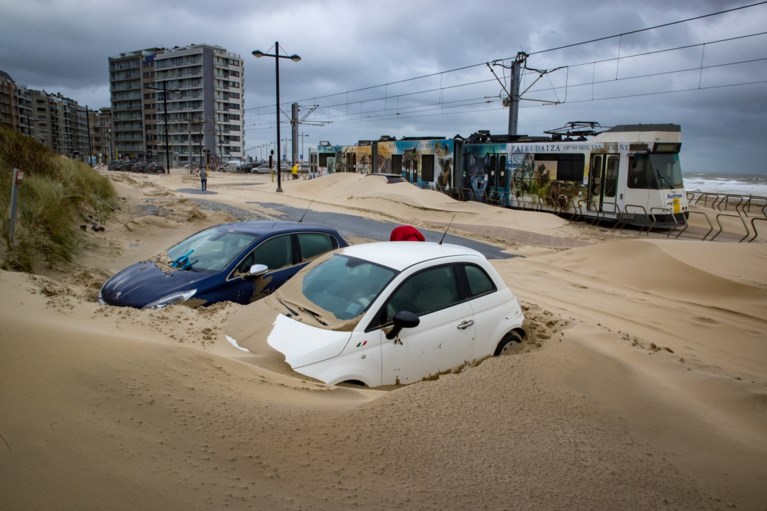Storm Odette continued to ravage the coastal towns of West Flanders yesterday, its second day since hitting land.
Cars parked close to the beach were buried in sand up to the hubcaps in towns up and down the coast, and drifting sand on the rails made passage difficult in places for the coast tram which runs from De Panne to Knokke.
“It is not new that there is a lot of sand on the tracks when there is a storm on the coast. This morning was no different,” said De Lijn spokesperson Karen Van Der Sype yesterday.
“This morning that was mainly a problem between Ostend and Westende. We had to use shuttle buses. But in some places it was so bad that even those buses could not follow the usual route.”
De Lijn is itself responsible for clearing sand from the tracks, but as she pointed out, while the wind is blowing it makes little sense to start clearing.
In Nieuwpoort, the E40 heading inland was closed until 14.00 because of storm damage caused on Friday night. A lighting pole was blown over and hung dangerously over the carriageway. And a repair operation had to wait until the worst of the gusting winds had died down before it could be started.
Local fire services received upwards of one thousand calls, and waiting times in some areas were up to two hours.
“Most interventions are concerning fallen trees, branches blown down, roofing that is blown away, fallen road signs and panels,” said Kristof Louagie, spokesperson for the Westhoek fire brigade zone.
“We are still expecting a lot of calls today. Our teams are working hard to process everything.”
As a result of damage caused by strong winds on the first day, West Flanders governor Carl De Caluwé ordered a stop to all water sports.
“There have been a lot of beach huts blown over on the beach and there is a strong wind, and that combination is very dangerous,” he said. Anyone failing to comply with the ban could be fined.
The storm has already begun to die down overnight.
Alan Hope
The Brussels Times

